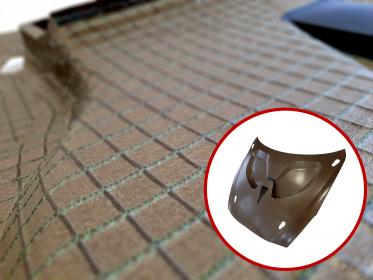ERCA, Patagonia® and YKK announce implementation of ERCA’s REVECOL®
ERCA, Patagonia® and YKK announce the implementation of ERCA’s REVECOL®, a sustainable, innovative chemical agent, in YKK’s dyeing processes at their Vietnam production sites transforms common waste material, such as exhausted vegetable cooking oil, into an upcycled, certified high performance, safe textile chemical. ERCA has invested in circular practices to take waste material and use them as feedstocks to create new responsible chemical products.
Always searching for new sustainable innovations, REVECOL® caught the attention of Patagonia®. Driven by the goal to utilize non-extractive chemistry in their supply chain wherever possible, the brand teamed up with ERCA and trim supplier YKK to deploy REVECOL®.
REVECOL® LV-TS has a carbon footprint that is 72% lower* than the more conventional chemical auxiliaries produced by ERCA. Today ERCA produces a wide range of high-performance chemical auxiliaries made from used vegetable oil that are ZDHC, bluesign® approved and GRS certified.
ERCA is one of the first companies to have GRS certified chemical products, opening the door to circular chemical auxiliaries.
As part of their Sustainability Vision 2050, YKK is constantly working to deploy more sustainable chemical processes in their production. The ability to replace a commonly used dye chemical with a lower impact version was a no-brainer for YKK’s Vietnam management. REVECOL® is not only more sustainable, it is also more efficient, reducing the use of the dyeing auxiliary by 20% to 30%, thus helping to lower YKK’s overall chemical usage.
* bluesign® Product Carbon Footprint Report












